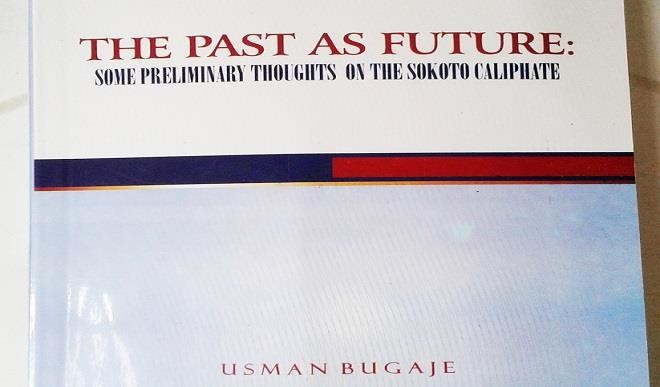The past looking forward
The visit of the United State Secretary of State, John Kerry to Sokoto recently became a good occasion for pouring encomiums on the achievements of the over 200 years Sokoto Caliphate. Earlier the Sokoto State Governor, Aminu Waziri Tambuwal, in a tribute published at the back page of Daily Trust of 23th August 2016, said […]


The visit of the United State Secretary of State, John Kerry to Sokoto recently became a good occasion for pouring encomiums on the achievements of the over 200 years Sokoto Caliphate. Earlier the Sokoto State Governor, Aminu Waziri Tambuwal, in a tribute published at the back page of Daily Trust of 23th August 2016, said with justifiable pride that “Kerry will be visiting Sokoto at a time of renewed interest in the ideals and tenets of the pre-colonial Sokoto Caliphate”.
Governor Tambuwal praised the contemporary Caliphate for spearheading the quest for religious tolerance, moderation and promotion of understanding among various faiths and ethnic groups in Nigeria and expressed gratitude to the Caliphate’s founders for the promotion of scholarship. He specially mentioned the spiritual leader Sheikh Usman Dan Fodio, his son and successor Muhammadu Bello, his brother Abdullahin Gwandu, and his daughter Nana Asma’u and said, “Each one of them wrote books of poetry and texts on religion, politics and history”. At the last count they were said to have left behind over three hundred texts on various aspects of the Jihad and the administration of the Caliphate.
It may be a coincidence, albeit a fitting one, that Usman Bugaje has just released a book titled: The Past as Future: Some Preliminary Thoughts on the Sokoto Caliphate. The book is a collection of essays on the Sokoto Caliphate that Bugaje wrote over a period of 24 years either as seminar papers, lectures or formal addresses. Of course Bugaje is in a unique position to pontificate on the Sokoto Caliphate. After all he earned his Ph.D. from researches and deep reflections on the subject.
The prologue in the book established the general theme of the subject. Bugaje poses that the establishment of the Sokoto Caliphate is an example of “how a sense of purpose informed by a world view can change the course of history”. He related how a group of young idealistic scholars who were heirs to a great tradition of learning which goes way back to the 11th Century, informed by a Islamic sense of purpose, were determined to change the decadent conditions of 18 Century Hausa land. They refused to be persuaded by the ‘establishment scholars’ that governments cannot be challenged, defying the threats of the powerful and ruthless rulers of the Hausa States and mustering the staying power to educate and mobilize citizens to rally round for change.
When the movement succeeded, it created not only an empire but more importantly an educational system and administrative structure that survived even the British colonialism, and remained relevant to this day. He goes on to discuss the scope of the Sokoto model as well as the impact and influence of the Caliphate that went beyond its original borders. The chapter on the Caliphate in modern Nigeria is probably the most exciting to read. This is where Bugaje raises the issue of the relevance of the Caliphate in contemporary Nigeria and poses the question: do we end it, mend it or reinvent it? Typical of Bugaje, he did not shy away from confronting these questions, and when one reads the book, and finds the answers, one would be satisfied that they were unimpeachably logical.
The book comes highly recommended. His Eminence, Sultan of Sokoto, Muhammad Sa’ad Abubakar 111 wrote the forward where he endorsed the contents of the book as, “a handy material to all those who want to understand the true motive forces behind the widely acknowledged success of both the Islamic Jihad in the Bilad al Sudan and endurance of the Caliphate that emanated from it”. Hamid Bobboyi, the Ahmadu Bello University historian who left an indelible mark as Director of Arewa House, Kaduna, and is now the Helmsman at Universal Basic Education Commission (UBEC) wrote the introduction to the book. He said that the book is “a robust attempt at providing some glimpses into the history of the Caliphate and evaluating the scope and significance of its socio-political and intellectual legacy over the last two centuries.”
